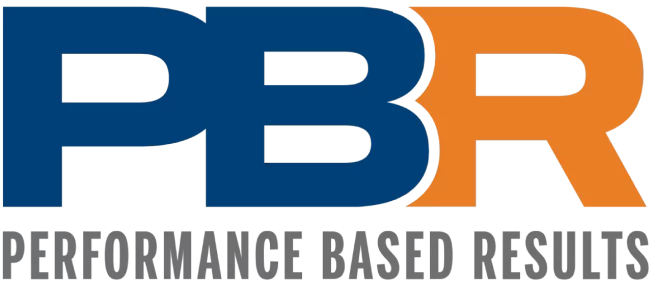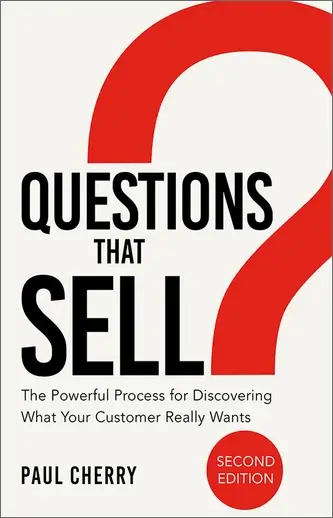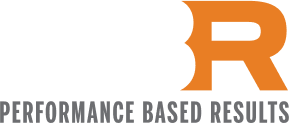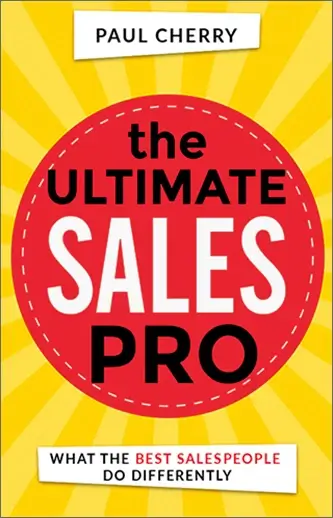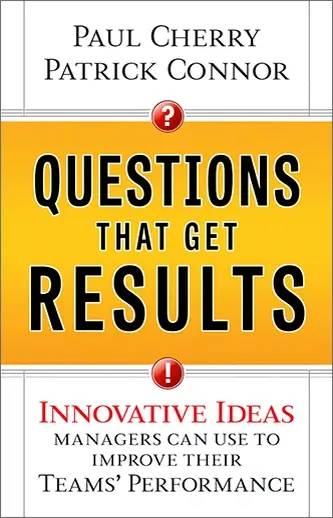During this very warm summer, I thought I’d re-post a favorite article from a few years ago that sparked many discussions and feels perfect for the season!
Asking great warm-up questions during a cold call meeting is invaluable for establishing a new business relationship with a prospect.
You’ve scheduled your first meeting with a new prospective customer! You’re hoping for “beginner’s luck” and eager to make a stellar first impression—but what’s the best way to do that?
Should you question when your prospect knows little to nothing about you? How do you provide background on your company without slipping into a sales pitch?
You want to set the stage and build credibility quickly; otherwise, your prospect might think, “Why am I wasting my time with you?”
Maximizing cold calls
Maximizing cold calls is crucial for boosting sales performance. Initially, understanding the significance of effective cold calling can greatly impact your sales strategy.
Asking the right cold call questions helps identify prospect needs and build rapport. Additionally, a well-crafted cold call series ensures consistent follow-ups.
By mastering cold-calling techniques, you can overcome objections, establish credibility, and ultimately convert more prospects into clients.
Establishing relevance and rapport
When making an in-person cold call, establishing relevance and rapport is essential for capturing the attention of your prospects and setting the stage for a productive conversation.
Begin by demonstrating a deep understanding of their business challenges and industry-specific pain points.
For example, you can mention how their company might face issues like lost sales revenue or ineffective selling performance, which are common problems you solve.
Furthermore, asking insightful cold call qualifying impact questions can significantly enhance your credibility.
By tailoring your questions to the prospect’s specific context, you not only show that you’ve done your homework but also that you’re genuinely interested in providing a solution. This approach facilitates trust and fosters a meaningful connection right from the start.
Leveraging pre-call research
Understanding your Prospect’s Pain Points is indispensable to a successful cold call strategy. This process begins with Leveraging Pre-Call Research.
To clarify, pre-call research involves gathering essential information about your prospect before making contact. This can include studying their company’s current projects, recent news, and specific challenges they might be facing.
For instance, understanding potential clients’ “lost sales revenue” concerns allows you to tailor your conversation more effectively. Moreover, knowing their sales team’s “ineffective and poor selling performance” can guide you in offering targeted solutions.
Therefore, dedicating time to pre-call research can significantly enhance your cold-calling efforts, making each interaction more personalized and impactful. In short, a well-prepared call demonstrates professionalism and heightens your chances of success.
Crafting a compelling elevator pitch
Creating a compelling elevator pitch is crucial for capturing the prospect’s attention during a cold call. To begin with, an effective elevator pitch should succinctly communicate who you are, what your business does, and the unique value you offer—all within 30 seconds.
This brief yet powerful introduction must be clear, engaging, and tailored to address the prospect’s pain points.
Therefore, focus on specific benefits that resonate with their needs, like “increasing sales” or “reducing overhead.” Moreover, use persuasive language and strong action words to create a sense of urgency and importance.
For instance, phrases like “maximize your profits” or “stay ahead of the competition” can make your pitch more compelling and memorable.
Exploring open-ended inquiry techniques
Open-ended inquiry techniques are vital in uncovering the hidden needs and desires of your prospects, ultimately driving more successful sales outcomes.
Unlike closed-ended questions that yield simple “yes” or “no” answers, open-ended questions encourage expansive dialogue and deeper insights.
For example, asking, “Can you describe your biggest challenge in achieving sales targets?” invites detailed responses that reveal pain points, such as lost sales revenue or missed targets.
In other words, these techniques not only display your advanced questioning skills but also build stronger relationships by making your prospects feel heard and understood.
Therefore, mastering these techniques can set you apart and significantly enhance your sales performance.
By exploring these methods, you will discover what your customer really wants, increasing your ability to provide viable selling behaviors and, consequently, close more sales.
Navigating the cold call conversation
Navigating the cold call conversation can be challenging, yet mastering it transforms potential leads into valuable clients. Initially, it’s crucial to keep the conversation focused and engaging.
Therefore, active listening and asking strategic cold calling in-person questions can reveal significant insights about the prospect. For example, inquire about their current challenges and what solutions they’ve tried before.
Moreover, demonstrating empathy by acknowledging their pain points fosters trust. Similarly, share relatable success stories to reinforce credibility. To clarify, always steer the conversation towards how your solution can directly benefit their business.
But, be mindful of balancing persistence with respect, allowing space for prospects to express their concerns. By doing so, you effectively navigate the cold call conversation, paving the way for successful business relationships.
Bonus tips for cold-calling success
Crafting Persuasive Cold Call Scripts
Creating a successful cold call script is essential for B2B professionals. A persuasive script can mean the difference between engaging a prospect and getting a quick hang-up. Begin by crafting an opening statement that captures attention.
Understanding the Prospect’s Pain Points
Understanding the prospect’s pain points is crucial for tailoring your script effectively. These pain points often include lost sales revenue, missed targets, poor selling performance, and ineffective sales strategies.
By addressing these issues early in your conversation, you’ll immediately establish relevance and credibility.
Creating a Compelling Opening Statement
A compelling opening statement should highlight why the call is relevant to the prospect. For instance, mentioning a recent industry trend or specific challenge they face can hook their interest.
Injecting Personalization
Injecting personalization into your cold call script will make it more engaging and relatable. Use the prospect’s name and refer to their company’s specific scenarios or challenges.
This not only shows that you’ve done your research but also positions you as a valuable partner rather than just another salesperson.
By implementing these strategies, your cold call scripts will be more effective, leading to higher engagement and, ultimately, more closed sales.
Preparing for Effective Cold Calls
Preparing for effective cold calls involves more than just dialing a number; it requires a strategic approach. Firstly, understanding the cold call series is essential.
Next, tailor your cold-calling questions to engage prospects meaningfully. Moreover, the target market needs to be researched to understand their needs and pain points.
Finally, practice your script to ensure confidence and clarity. With these steps, your cold calls will convert more effectively.
Avoid small talk – get to the point.
It’s tempting to try warming up with small talk about the weather or an interesting item in your prospect’s office—but that can backfire if you’re not careful.
I knew a salesman who found out in advance that his prospect liked cricket. He studied the sport so closely that he engaged the prospect in a lively 45-minute conversation. Unfortunately, after their cricket chat, the prospect had no time for business as he had to dash off to a crucial meeting!
Another salesman noticed a large teak turtle statue in his prospect’s office and thought it would make a great warm-up topic.
After asking about the turtle’s origins and craftsmanship, he asked, “So what made you decide to put this handsome creature in your office?” The prospect smirked and replied, “Oh, I just use it to bait salespeople like you who waste my time with lame questions.” Ouch!
Sure, you’d like to build a relationship with a customer before pitching your products and services. Talking about hobbies and office decor is nice, but it only goes so far. The big decision-makers you want to reach are too busy to build relationships first.
They don’t have time for small talk about cricket, teak turtles, or charming family photos on their desks. Remember, you can’t rush trust.
Talk about what matters to your prospect.
Trite questions roll off the tongue but inspire trite responses, especially when customers are short on time.
These individuals are guarded because they don’t know you or how far to trust you. How do you cultivate their trust? How can you tell if they want to do business with you or just pick your brain for free?
Use warm-up questions to segue into business aspects that matter to the customer, revealing their most pressing concerns. The key is to formulate warm-up questions that reach the heart of the matter with precision while being subtle enough not to intimidate your customer.
Discuss market trends affecting the client’s company. Mention an article you found relevant in a trade or business publication during your research for the meeting.
For example, Kyle sells recruitment solutions and wants to initiate a dialogue with Emma, his contact in the target company’s HR department. He stops by Emma’s office and, after brief pleasantries, leads with:
“Hey, Emma, while prepping for today’s meeting, I came across an article in ‘HR News’ about the cost of losing a high-performance sales rep—up to 20 times their salary.
Did you see that article? A client I visited last week calculated the cost of losing their best sales rep to be around $500,000. What have you been experiencing in your market regarding retention strategies for hiring and keeping strong sales performers?”
“Google” your new prospect before the meeting
Do extensive research well before the cold call meeting. Use Google or another search engine to gather personal and business profiles on your prospect and their company. Go beyond ordinary search methods by using an online business resource service.
The more details you compile, the more personalized your warm-up questions will be. Learn to understand the company’s:
- Ranking in its industry
- Financial strength
- Executives and their backgrounds
- Industry trends
- Competitors
- Customer base
- Services to find this information include:
- Dun & Bradstreet
- D&B Hoover’s
- Leadership Connect
- Reference USA
- Mergent
- Plunkett Research
The 60-second sound bite
After brief pleasantries, quickly transition and grab the busy prospect’s attention before they check out of the conversation.
Using a 60-second talk technique, or “elevator speech,” helps achieve this transition. There’s so much info you want to convey—how do you condense it into sixty seconds that’ll leave your prospect eager to hear more?
Since customers have little time to spare, ask to-the-point questions without appearing overbearing.
For instance, Andre might say to Sam, “Before we get started, would it be helpful if I spend 60 seconds explaining who we are and what we do?”
He then spends eight seconds briefly describing his company and highlighting a specialty that grabs Sam’s attention. He introduces a recent client success story or case study.
Like most sales professionals, Sam relates to stories specific to his business that strike an emotional chord. These stories should be:
- Short
- Specific
- Relevant
- Results-oriented
- A great 60-second sound bite must speak results in terms of:
- Dollars
- Percentages
- Numbers
- It should also illustrate how to:
- Overcome adversity
- Achieve greater sales success.
Five additional suggestions for a cold call
Warm-up questions: Ask open-ended, broad questions that get clients talking about their issues. For example:
“How long have you been with this organization?”
“How has your job (or responsibilities) evolved since you started?”
“What do you like most about your work? Least?”
“If your team were to describe this organization in five words or less, what words would come to mind?”
Jot down information: Capture critical info before it evaporates. Listen for keywords and the emotions behind them:
“We are having difficulty with __.”
“We are trying to __.”
“We are unsure of __.”
Avoid assumptions: Don’t make assumptions about a prospect. Ask lots of questions to gain fresh perspectives and avoid missing key details.
Slow down: Don’t sell too quickly. If you seem anxious to sell, your prospect will pick up on it and get defensive. Focus on the customer and establish a relationship.
Know the bottom line: Prospects want to know how you will eliminate business headaches and increase profits. Use warm-up questions to show you understand their needs and can help them save money and grow their business.
Warm-up questions
In the business-to-business (B2B) landscape, making cold calls can be daunting. However, by asking *warm-up questions*, you can significantly increase the chances of a successful conversation.
These initial queries are essential because they help to break the ice and set the tone for the rest of the call. *Warm-up questions* can be as simple as asking the prospect about their day or recent achievements within their company.
This approach fosters a connection and makes the prospect more receptive.
For example, asking, “How has your quarter been so far?” can reveal valuable insights and build rapport, setting the stage for a more effective and persuasive dialogue.
Effective note-taking
Cold Calling can be daunting, but asking warm-up questions can turn a chilly reception into a warm conversation.
This first step is crucial for establishing rapport and laying the groundwork for a successful interaction. The key is to ask questions that are relevant to the prospect’s industry and pain points.
For example, start by asking about recent trends or changes in their industry. In addition, inquire about their current challenges or goals for the coming quarter.
These questions not only show that you have done your homework but also give you valuable insights into your prospect’s specific needs.
As a result, your conversation will feel more personalized and engaging, increasing the likelihood of a positive outcome.
Avoiding assumptions
When engaging in cold calls, avoiding assumptions is crucial to success. Assuming you know the prospect’s needs or pain points can lead to a misalignment in your pitch. Instead, use “cold calling questions” to gather accurate information about their specific challenges and goals.
For instance, asking about their current strategies or what specific issues they are facing can provide valuable insights.
This approach not only makes your conversation more relevant but also builds trust with the prospect. In other words, don’t jump to conclusions; let your “cold call series” evolve naturally based on the responses you receive.
This method ensures a more effective and meaningful dialogue.
Slowing down
Cold calling in person is an essential part of B2B sales, and starting with the right warm-up questions can set the stage for successful conversations. Asking warm-up questions not only breaks the ice but also builds rapport and trust.
When speaking with presidents, CEOs, business owners, or sales leaders, it’s crucial to tailor these questions to address their specific interests and pain points.
For instance, asking, “What current challenges is your sales team facing?” or “How are you addressing missed sales targets?” can engage prospects and demonstrate your understanding of their issues.
By doing so, you immediately position yourself as a consultative partner who is there to listen and offer solutions.
Knowing the bottom line
Cold calling remains one of the most challenging yet rewarding sales tactics. To break the ice effectively, asking warm-up questions is crucial.
First and foremost, warm-up questions serve to engage the prospect in a meaningful conversation right from the start. These questions should be open-ended, allowing the prospect to elaborate on their responses and share valuable insights.
For instance, inquire about their company’s recent achievements or significant changes in their industry. Not only does this show genuine interest, but it also helps to build rapport and trust.
Therefore, asking warm-up questions can set the stage for a more productive and engaging cold call, ultimately leading to better sales opportunities.
Crafting Persuasive Cold Call Scripts
Crafting persuasive cold call scripts is crucial for engaging potential clients effectively. A well-crafted script can significantly increase your chances of capturing the attention of Presidents, CEOs, and VPs of Sales.
Therefore, it is essential to focus on addressing their specific pain points like lost sales revenue or ineffective selling performance. In other words, your script should be tailored, concise, and solution-oriented to make each cold call impactful.
Understanding the Prospect’s Pain Points
Understanding the prospect’s pain points is crucial for a successful cold call. Firstly, knowing these pain points allows you to tailor your message to address their specific challenges, such as lost sales revenue and missed targets.
Secondly, this knowledge positions you as a consultative partner rather than a pushy salesperson. For example, if a CEO struggles with ineffective selling performance, discussing how your training can improve sales behaviors can grab their attention.
Moreover, addressing their pain points, like not closing sales or motivating an unmotivated sales team, makes your call more relevant. Therefore, always research thoroughly before the call to uncover these pain points.
This approach ensures you deliver value from the first interaction, increasing the likelihood of a successful outcome.
Creating a Compelling Opening Statement
A compelling opening statement is the key to successful cold calling in person. It sets the tone for the conversation and piques the prospect’s interest. First and foremost, your opening statement should be brief yet impactful.
Focus on addressing a common pain point that resonates with your target audience, such as “Are you struggling with ineffective selling performance?”
This immediately grabs attention and shows you understand their challenges. Moreover, be sure to inject your unique value proposition.
For example, “Our advanced questioning techniques have proven to increase sales by up to 30%.” In other words, make it clear from the outset why they should listen to you.
A powerful opening statement can make all the difference in cold call qualifying questions.
Injecting Personalization
Tailoring your cold call for each prospect can significantly enhance engagement, which is why injecting personalization is pivotal. Personalized cold calls demonstrate that you’ve done your homework and genuinely understand the prospect’s business.
Begin by referencing a specific pain point or achievement the company has experienced. For instance, mentioning a recent milestone or acknowledging their market position can capture their attention.
Moreover, customize your cold call questions to relate directly to their industry challenges.
This approach not only increases the likelihood of a productive conversation but also sets you apart from a generic cold call series. In other words, personalized interactions make your call more memorable and effective, ultimately increasing your chances of closing the deal.
Building Credibility and Trust
Establishing credibility and trust during a cold call is essential for creating a lasting impression and fostering a strong business relationship.
Firstly, demonstrate your expertise by referencing industry-specific examples or showcasing well-known clients who have benefited from your services.
Furthermore, use data and real-world results to back up your claims, showing prospects that you deliver tangible value.
“Our approach has increased sales revenue by 40% for similar companies in your sector.”
Moreover, attentively listen to the prospect’s concerns and respond thoughtfully, showcasing your advanced questioning and listening skills. This helps in building an emotional connection and demonstrates that you genuinely care about solving their problems. Consequently, you’ll position yourself as a trusted advisor, not just a salesperson.
Handling Objections with Confidence
Handling objections with confidence is crucial for sales professionals aiming to overcome potential roadblocks in the sales process.
First and foremost, understanding the underlying concern is vital. For instance, when a prospect questions the effectiveness of your training, provide them with case studies and testimonials from satisfied clients who have seen tangible improvements.
Consequently, this showcases your proven track record.
Furthermore, when faced with pricing objections, emphasize the long-term value and ROI your services bring. Therefore, articulate how investing in your advanced sales questioning training can lead to increased sales and profits.
Moreover, addressing fears about disrupting the sales team’s workflow requires demonstrating how your training sessions are designed to be highly effective yet minimally disruptive. Above all, always listen actively to their concerns and respond with tailored, reassuring information.
Wrap up
A compelling cold call starts with thoughtful preparation and effective strategies. By crafting persuasive cold call scripts and understanding the prospect’s pain points, we ensure a meaningful conversation.
Creating a compelling opening statement lays the foundation for engaging dialogue while injecting personalization fosters a deeper connection. Each of these steps is crucial in our cold call series.
To sum up, mastering these elements not only addresses common sales challenges, such as poor selling performance and lost revenue but also drives increased profits and sales growth.
Remember, asking the right cold-calling questions can be the key to unlocking new opportunities and achieving your business goals. Let us help you develop these essential skills for remarkable results.
